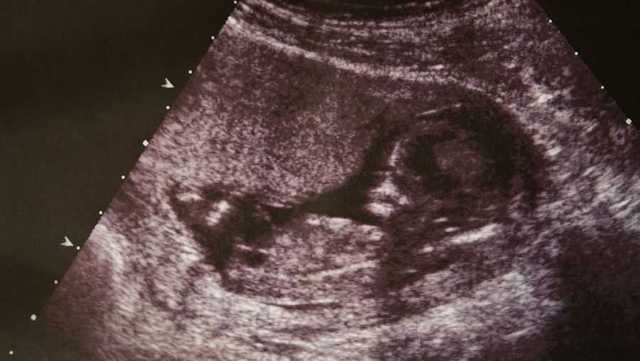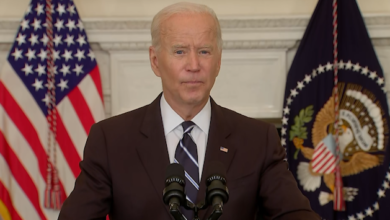
THANK YOU RICHARD FOR THAT UPDATE. ON WLWT. INDIANA IS NOW THE FIRST STATE TO BAN NEARLY ALL ABORTIONS FOLLOWING THE SUPREME COURT’S DECISION TO OVERTURN ROE V WADE WLWT NEWS 5’S CHRISTOPHER SALAS IS LIVE FROM OUR WASHINGTON BUREAU WITH THE LATEST. GOOD MORNING, CHRISTOPHER. HEY, GOOD MORNING MEREDITH. INDIANA’S GOVERNOR SIGNED THESE NEW RESTRICTIONS SHORTLY AFTER LAWMAKERS PASS THEM ON FRIDAY. THIS NEW LAW GOES INTO EFFECT ON SEPTEMBER 15TH, AND IT DOES ALLOW FOR SOME EXCEPTIONS ABORTIONS WOULD BE PERMITTED IN CASES OF RAPE AND --, BUT IT HAS TO BE BEFORE 10 WEEKS ALSO PERMITTED TO PROTECT THE MOTHER’S HEALTH AND ALSO IF A FETUS IS DIAGNOSED WITH A FATAL ANOMALY NOW, INDIANA’S LAW REQUIRES THE PROCEDURE TO BE PERFORMED IN A HOSPITAL OR OUTPATIENT CENTER. THAT IS OWN. BY A HOSPITAL, THAT MEANS ALL ABORTION CLINICS WILL EFFECTIVELY HAVE TO SHUT DOWN UNDER THIS NEW LAW AS WELL DOCTORS WHO PERFORM ILLEGAL ABORTIONS OR WHO FAIL TO FIRE OR FILE REQUIRED PAPERWORK WILL LOSE THE
Indiana abortion clinic operators filed a lawsuit Tuesday seeking to block the state’s near-total ban on abortions.The lawsuit filed in a Monroe County court claims the ban, set to take effect on Sept. 15, “strips away the fundamental rights of people seeking abortion care” in violation of the Indiana Constitution. It argues the law “will infringe on Hoosiers’ right to privacy, violate Indiana’s guarantee of equal privileges and immunities, and includes unconstitutionally vague language.”Indiana’s Republican-dominated Legislature approved the tighter abortion restrictions on Aug. 5, making it the first state to do so since the U.S. Supreme Court eliminated federal abortion protections for abortions by overturning Roe v. Wade in June. The Indiana law includes exceptions, allowing abortions in cases of rape and incest, before 10 weeks post-fertilization; to protect the life and physical health of the mother; and if a fetus is diagnosed with a lethal anomaly. Under the law, abortions can be performed only in hospitals or outpatient centers owned by hospitals, meaning all abortion clinics would lose their licenses. Any doctors found to have performed an illegal abortion would be stripped of their state medical licenses and could face felony criminal charges punishable by up to six years in prison.Indiana’s ban followed the political firestorm over a 10-year-old rape victim who traveled to the state from neighboring Ohio to end her pregnancy. The case gained wide attention when an Indianapolis doctor said the child came to Indiana because of Ohio’s “fetal heartbeat” ban.The leader of Indiana’s most prominent anti-abortion group argued the state constitution protects life as among the “inalienable rights.”“We are confident the state will prevail and pray the new law is not blocked from going into effect on September 15, knowing that any delay will mean the indiscriminate killing of unborn children will continue at abortion clinics across Indiana,” Indiana Right to Life CEO Mike Fichter said in a statement.
Indiana abortion clinic operators filed a lawsuit Tuesday seeking to block the state’s near-total ban on abortions.
The lawsuit filed in a Monroe County court claims the ban, set to take effect on Sept. 15, “strips away the fundamental rights of people seeking abortion care” in violation of the Indiana Constitution. It argues the law “will infringe on Hoosiers’ right to privacy, violate Indiana’s guarantee of equal privileges and immunities, and includes unconstitutionally vague language.”
Under the law, abortions can be performed only in hospitals or outpatient centers owned by hospitals, meaning all abortion clinics would lose their licenses. Any doctors found to have performed an illegal abortion would be stripped of their state medical licenses and could face felony criminal charges punishable by up to six years in prison.
Indiana’s ban followed the political firestorm over a 10-year-old rape victim who traveled to the state from neighboring Ohio to end her pregnancy. The case gained wide attention when an Indianapolis doctor said the child came to Indiana because of Ohio’s “fetal heartbeat” ban.
The leader of Indiana’s most prominent anti-abortion group argued the state constitution protects life as among the “inalienable rights.”
“We are confident the state will prevail and pray the new law is not blocked from going into effect on September 15, knowing that any delay will mean the indiscriminate killing of unborn children will continue at abortion clinics across Indiana,” Indiana Right to Life CEO Mike Fichter said in a statement.
Source link








